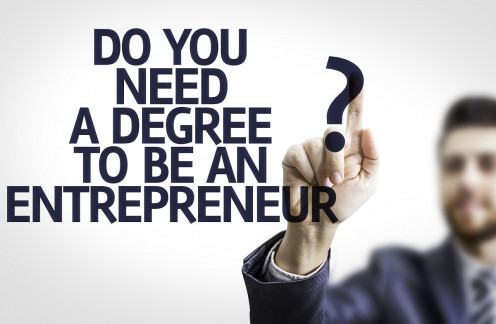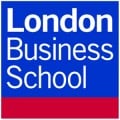MBA Versus University of Life: Which Should Future Entrepreneurs Pick?

Is a postgraduate business education the best route to entrepreneurship?
You can find some stunning examples of gifted and highly successful entrepreneurs, such as Facebook founder Mark Zuckerberg or Microsoft’s Bill Gates, who did not pursue such an academic route – but their act sure is a tough one to follow. The world of entrepreneurship presents many challenges, and nowadays many argue that the lack of a strong business education should not be one of them. When dealing with the issues of building infrastructure, finding investors, branding and marketing your product, and competing in a tight global marketplace, the unique and invaluable tools that a high quality MBA program offers can make or break a new entrepreneur, especially when the going gets rough.
MBA vs. University of Life
Do you think that Entrepreneurs with an MBA earn more on average than others?
The Research: An MBA Is Winning Career Move
According to a recent Financial Times survey involving 7,800 graduates from the world’s top 100 business schools, 22% of those who completed an MBA program initiated their own company after graduation and of these, 84% were still operating three years later. These statistics are pretty impressive since on average, according to the US Bureau of Labor Statistics, only 60% of all businesses actually make it to their third year anniversary.
Shely Aronov, who graduated at the top of her class from Stanford Graduate School of Business, launched her San Francisco-based Israeli cuisine business, Yamba Hummus, a year after obtaining her MBA. She comments that Stanford not only provided her with an MBA, but more importantly with the incentive and mentor support to be an entrepreneur. Perhaps without the initial buffering of the Stanford MBA program, Aronov would have doubted her ability to be successful in pursuing her entrepreneurial dream.
Stanford School of Business Grads who founded their own companies were averaging $190,506 three years after graduation, versus their peers who were earning on average $170,433!
The Financial Times survey also refuted long-held assumptions that entrepreneurs must compromise on income in order to launch their companies. Just the opposite—MBA graduate entrepreneurs were on average earning $134,000 compared with $132,000 among MBA graduates in general. Graduates from the Stanford School of Business in California who founded their own companies were averaging $190,506 three years after graduation, versus their peers who were earning on average $170,433 (see data on http://www.ft.com/intl/cms/s/2/3d3f48f8-95cb-11e4-be7d-00144feabdc0.html). Further, only 5% of entrepreneurs responded that they were forced to forgo a salary for three years after founding their company. 42% of those surveyed stated that, three years after graduation, the start-up they founded was their sole source of income. 36 of the 2011 MBA graduates at MIT Sloan started their own business. Three years later, 86% were still operating and 58% of the founders were receiving their sole source of income from their companies. At Babson College, 39% of the 2011 graduating class founded their own businesses, and three years later, 93% of those businesses were still in operation.
The survey revealed that entrepreneurship success seems to be better for those receiving their MBA from an American university. Out of the five top entrepreneur producing MBA programs, four are in the US: Harvard Business School, Stanford Graduate School of Business, University of Pennsylvania, Wharton, and Columbia Business School. Rounding out the list were the jointly-ranked London School of Business and Insead, in France/Singapore.
Essential Business Survival Tools from the MBA Classroom
The MBA classroom environment provides budding entrepreneurs with important skills that cannot be obtained elsewhere. For instance, students learn how to:
- Identify, assess and respond to threats in the global economy
- Market and compete in a very competitive environment
- Brand their product or service
- Identify and market specifically to target audiences
- Maximize all the advantages of social media and Big Data

Through the examination of case studies of start-ups, MBA students learn what influences cause a company to succeed or fail. The MBA incubator environment allows entrepreneurs to begin to germinate their ideas in a safe place, where they can raise capital, network with successful entrepreneurs in relevant industries, prepare their business plans and present their ideas. For example, the Harvard Business School Rock Accelerator Program helps promising entrepreneurs develop their business ideas, including providing financial assistance and mentor support.
With the strong educational foundation and emotional preparedness gained from an outstanding MBA curriculum, a graduate can weather the sometimes stormy tides of the launch-up phase, and avoid becoming discouraged. The analytical skills gained in the classroom, along with an immersion in financial accounting, business management, information systems, communication and marketing, international economics, political structures and leadership make up the toolbox that an entrepreneur needs to survive and be successful.
MBA Programs Are Focused on Entrepreneurs
These facts are not lost on the prestigious business schools as they ramp up their entrepreneurship focus. For instance, according to an article on Fortune, both Harvard and Columbia are seeing a spike in the number of graduate students seeking an entrepreneurship track, between 20-30% at Harvard. And a 2014 report produced by the Graduate Admissions Council—2014 Alumni Perspectives—shows a significant increase in the number of MBA graduates who are founding their own businesses. The survey reveals that as much as 45% of MBA graduates from the years 2010-13 started their own business immediately after graduation. Stanford Graduate School of Business reports that 17% of the 2013 graduating class started their own companies in businesses as varied as internet services, media, finances and entertainment.
The majority of new companies are in the high-tech field, since naturally this is where young minds are focused today, and the proliferating tech market is a natural incentive for emerging business leaders. MBA schools are keeping pace with this reality, focusing on technology development, and opening outreach and support centers in high-tech hubs such as Silicon Valley and Boston.
The Financial Investment in an MBA Pays off Later
Wharton Business School students are very familiar with the successful startups of MBA graduates, such as Quidsi, a baby product company, which was purchased by Amazon in 2010 for $545M, Venmo, a mobile payment app developer, SeedInvest an investment startup and Warby Parker, an eyewear retailer. Wharton students are inspired by these stories, and also see the value of the Wharton Business School degree in manifesting such accomplishments.
The Fortune article gives some great examples of how the MBA program is a recipe for entrepreneurial success. Two Columbia MBA graduates, Wilson and Walsh, launched their own venture called the Thursday Boot Company. Utilizing savvy, edgy Kickstarter advertising, they made $275,000 in 24 hours from the initial sale of their $199 boots. The company founders said they attended business school in order to become entrepreneurs, because they valued the quality of education and the classroom offerings that would stand them strong against the competition. Columbia also provided them with startup lab support, where they could gain crucial branding, marketing and legal advice.

Can You Be a Success without Business School?
There are success stories of entrepreneurs who launched themselves into the corporate world without the benefit of a formal business education. Steve Jobs, founder of Apple, perhaps the best known example. But, modelling yourself after the unique exception is not a high probability path to take. Moreover, in an age of rapidly changing high-technology, social media, short attention spans, intense competition and the necessity of working in an international marketplace, an entrepreneur must be equipped with critical skills and resilience in the face of the inevitable challenges of financial uncertainty and disruptions, stress on family and health, a sense of loneliness, and the need to stand strong in the face of adversity. Surprisingly or not, the business school education still reaps dividends.
Chances to succeed
Do you think MBA grads have better chance to succeed as entrepreneurs?
© 2015 Angela Chao








